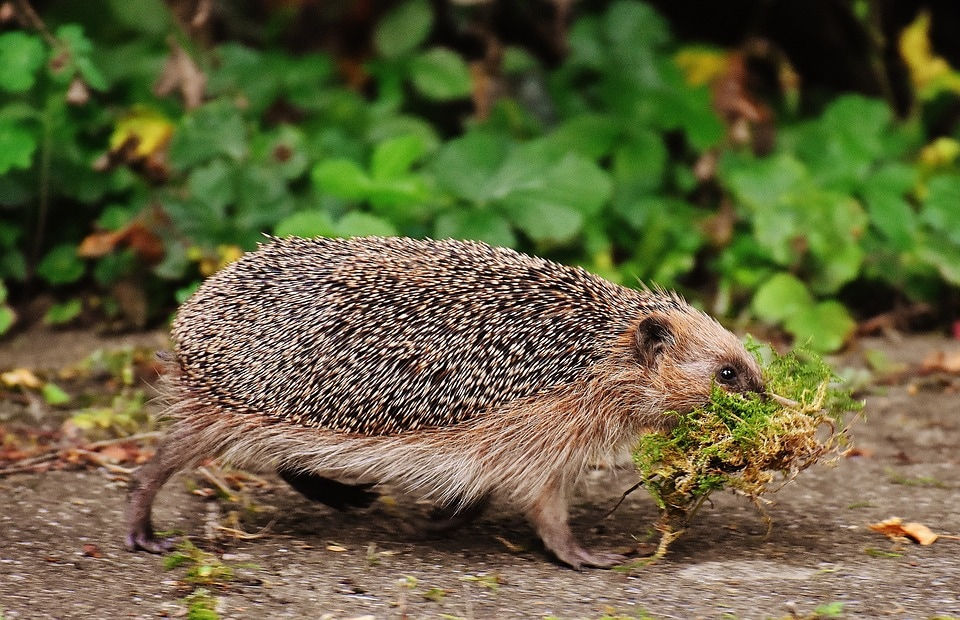A New Study Finds That 335,000 Hedgehogs Die On Britain's Roads Every Year
- Jennifer J

- Oct 19, 2020
- 3 min read

Hedgehog road deaths are now exceptionally high in the UK; according to a recent study.
A recent study has found that the number of Hedgehogs being killed on Britain's roads is very high.
The Report On Hedgehog Road Deaths
The report comes from a team of researchers from Nottingham Trent University (NTU). The report from the Nottingham Trent University (NTU) is called the 'Impacts and Potential Mitigation of Road Mortality for Hedgehogs in Europe'.
The report focused on how Britain's roads and roads users, were affecting the country's Hedgehogs. The researchers found that roads created a ''substantial problem'' for the country's Hedgehogs because roads result in Hedgehogs being unable to find food, shelter and mates - roads also prevents other wild animals from doing these things too.

The researchers also found that Hedgehogs being killed on Britain and Europe's roads was also a very serious problem. Roads are a very serious problem for Hedgehogs because they are being killed at an alarming rate on our roads.
The number of Hedgehogs being killed on Britain's roads every year is incredibly high. It is estimated that as many as 335,000 Hedgehogs are killed on Britain's roads every year.
Why Are Hedgehogs Declining In The UK?
The very high numbers of Hedgehogs being killed on UK roads is thought to be one of the reasons why Hedgehogs are in decline. Another reason it is thought that Hedgehogs are in decline is due to Hedgehogs not being able to find food, shelter and mates.
Hedgehogs Are An Endangered Species
The Hedgehogs that we have in the UK are known as the European Hedgehog.
Hedgehogs in the UK are a species which are classed as vulnerable to extinction now. Hedgehogs are now vulnerable to extinction due to the significant decline in the Hedgehog population over the most recent decades.

The Hedgehog population has declined significantly since the 1950s. In the 1950s, it was estimated that there were 30 million Hedgehogs on the British Isles. Today, it is estimated that there are fewer than 1 million Hedgehogs left on the British Isles.
Last year, it was estimated that the Hedgehog population had declined by half since 2000.
Helping Hedgehogs Avoid Extinction
We need to help prevent Hedgehogs from becoming extinct. If Hedgehogs keep declining in the way that they have been declining for the last few decades, then they could become extinct in the future if we don't stop their decline.
An excellent way to avoid their decline would be to come up with a solution to stop Hedgehogs being killed on roads.
Already, safer roads for Hedgehogs are trying to be created for Hedgehogs. Like last year, when road signs were created to warn motorists that Hedgehogs were in the area and crossed the roads was introduced. Other solutions to help save Hedgehogs, and other animals, would be to create bridges for wild animals that cross roads.
Bridges for wild animals over roads already exist. They are a way to help stop wild animals being killed when they are crossing the road. The bridges give wild animals a safe way to cross the road, without there being a risk to the animal's lives.
Another way that we can help save Hedgehogs from going extinct, is by saving their natural habitat and rewilding; while also creating roads away from areas where the natural world is present - rather than having roads go through places like forests etc.
And finally, you can also help Hedgehogs in your garden.
There are many ways that you can help Hedgehogs in your garden.
Including:
. Providing them Hedgehog food
. Providing them with a source of water to drink in your garden (please avoid giving Hedgehogs things like milk and bread)
. Providing them with a place to shelter and live
. Creating a space where they have easy access to your garden
And, lastly, another great way to help Hedgehogs in your garden is by avoiding using things like pesticides or slug repellents - Hedgehogs eat slugs and other insects, so if they ingest things like slug repellent, then it could end up poisoning them.
Together, we can create a world which is better for Hedgehogs, and given them a better future.
Sources:



Comments